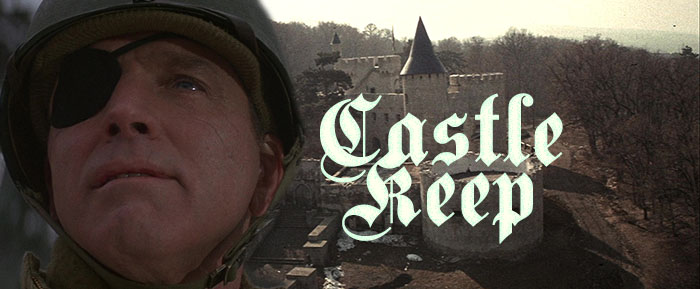
Color, 1969, 107 mins. 17 secs.
Directed by Sydney Pollack
Starring Burt Lancaster, Patrick O'Neal, Jean-Pierre Aumont, Peter Falk, Astrid Heeren, Tony Bill, Al Freeman Jr., Scott Wilson
Indicator (Blu-ray & DVD) (UK R0 HD/PAL), Sony (DVD) (US R1 NTSC) / WS (2.35:1) (16:9)
 most of Hollywood
most of Hollywood 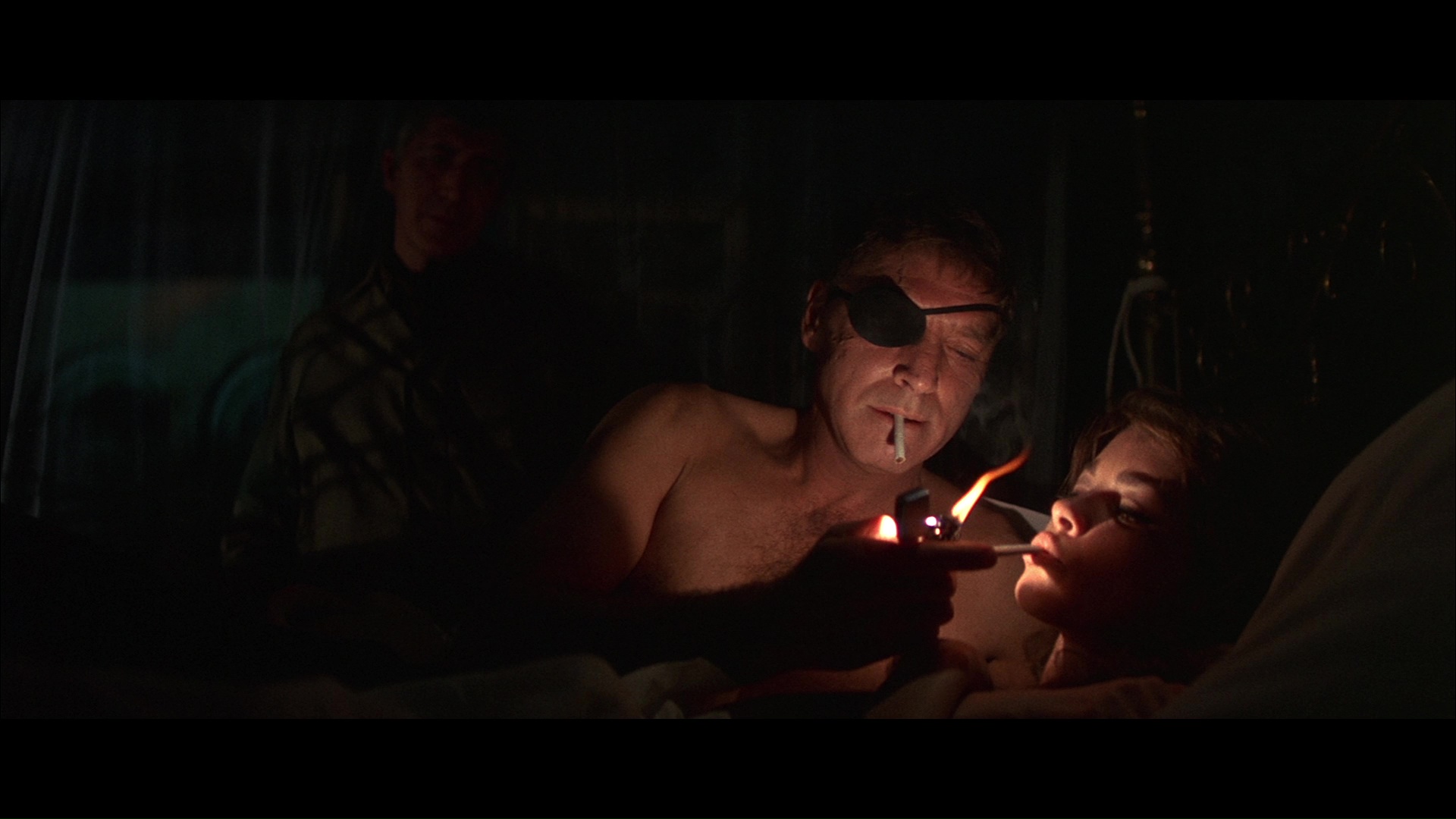 doesn't remember it, director Sydney Pollack got his start after cutting his teeth on television shows with a string of wild projects in the '60s and early '70s that rank among the most experimental studio films of the era. In addition to having a very strong hand in The Swimmer, he turned out such films as They Shoot Horses, Don't They?, The Scalphunters, and the indelible wartime fairy tale, Castle Keep. Drawing inspiration from a decades' worth of landmark French cinema as well as the long tradition of American war films, it's a haunting, unique, and often outright bizarre piece of work that could have been a significant midnight movie had it come out a few years later.
doesn't remember it, director Sydney Pollack got his start after cutting his teeth on television shows with a string of wild projects in the '60s and early '70s that rank among the most experimental studio films of the era. In addition to having a very strong hand in The Swimmer, he turned out such films as They Shoot Horses, Don't They?, The Scalphunters, and the indelible wartime fairy tale, Castle Keep. Drawing inspiration from a decades' worth of landmark French cinema as well as the long tradition of American war films, it's a haunting, unique, and often outright bizarre piece of work that could have been a significant midnight movie had it come out a few years later.  an art history buff (O'Neal) who wants to salvage the castle's treasures, and an aspiring baker (Falk) who finds his calling in town when they aren't all killing time at the local brothel. However, German forces are
an art history buff (O'Neal) who wants to salvage the castle's treasures, and an aspiring baker (Falk) who finds his calling in town when they aren't all killing time at the local brothel. However, German forces are 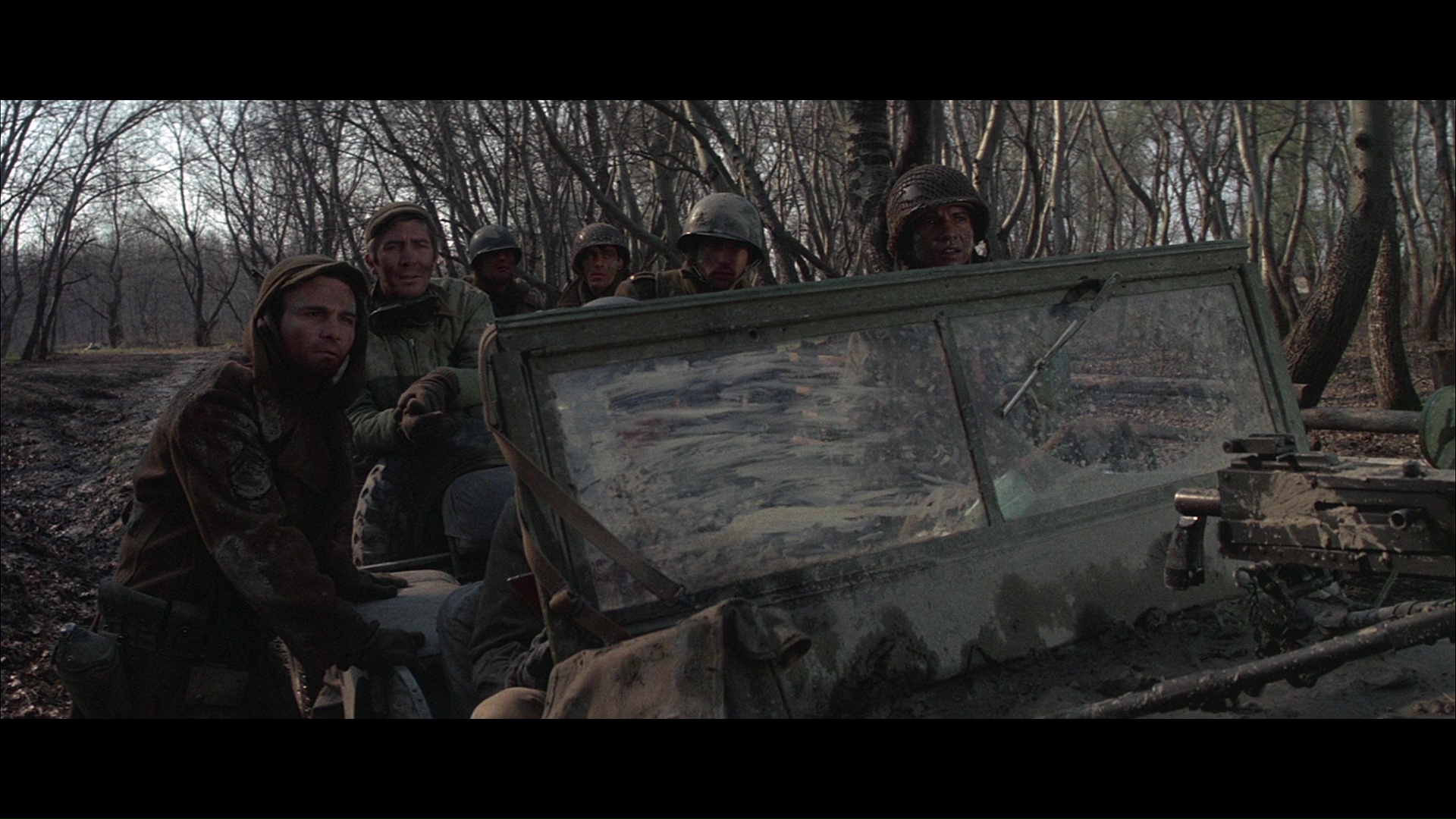 destined to close in and try to take out the American interlopers, which can only mean a giant, fiery showdown promised on the film's poster.
destined to close in and try to take out the American interlopers, which can only mean a giant, fiery showdown promised on the film's poster. 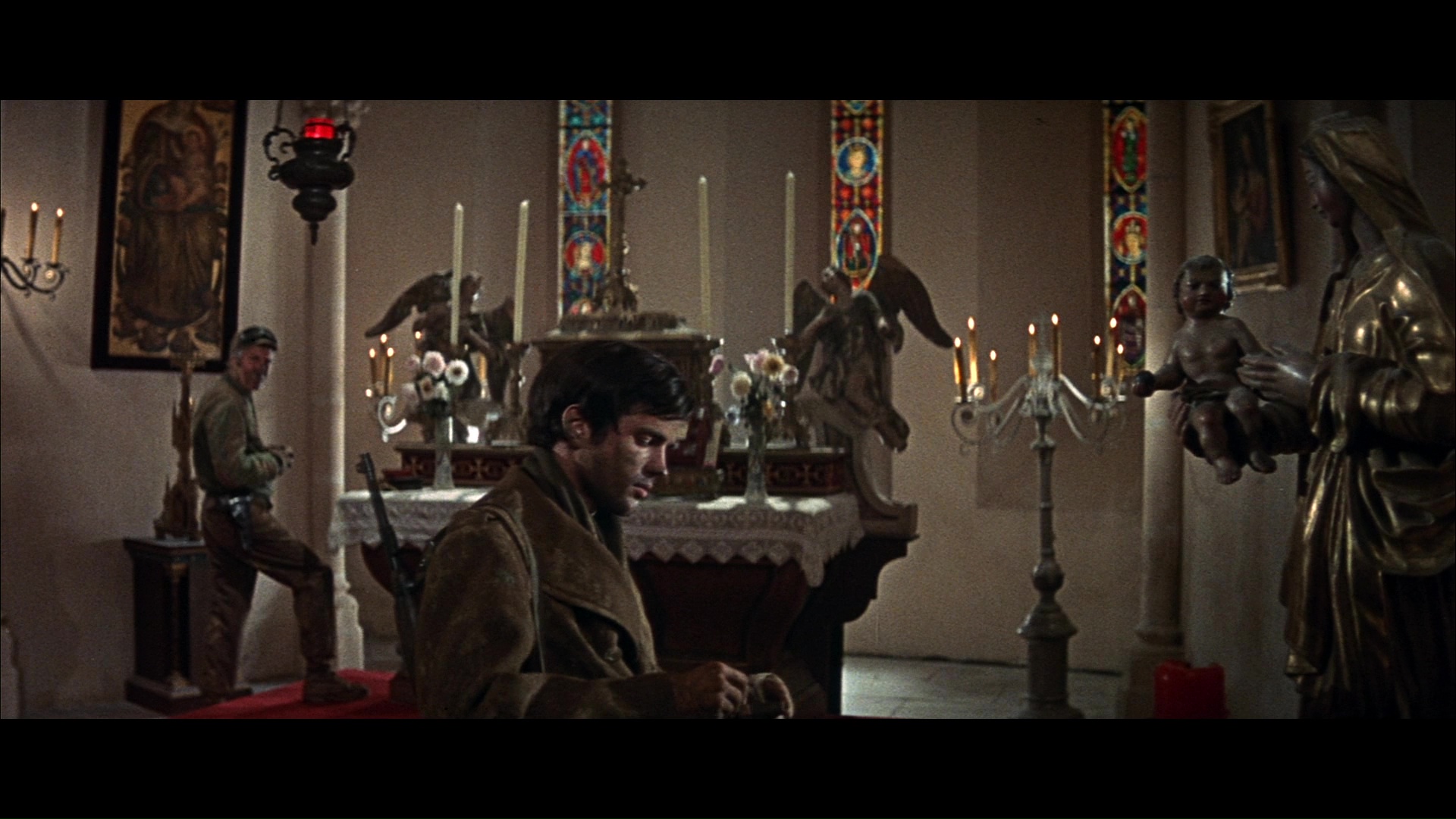 with its pre-credits sequence feeling like the characters are not only stepping through time but into another dimension entirely. That effect is really driven home by the gorgeous widescreen cinematography by the great Henri Decaë, a maestro of scope composition who also shot
with its pre-credits sequence feeling like the characters are not only stepping through time but into another dimension entirely. That effect is really driven home by the gorgeous widescreen cinematography by the great Henri Decaë, a maestro of scope composition who also shot 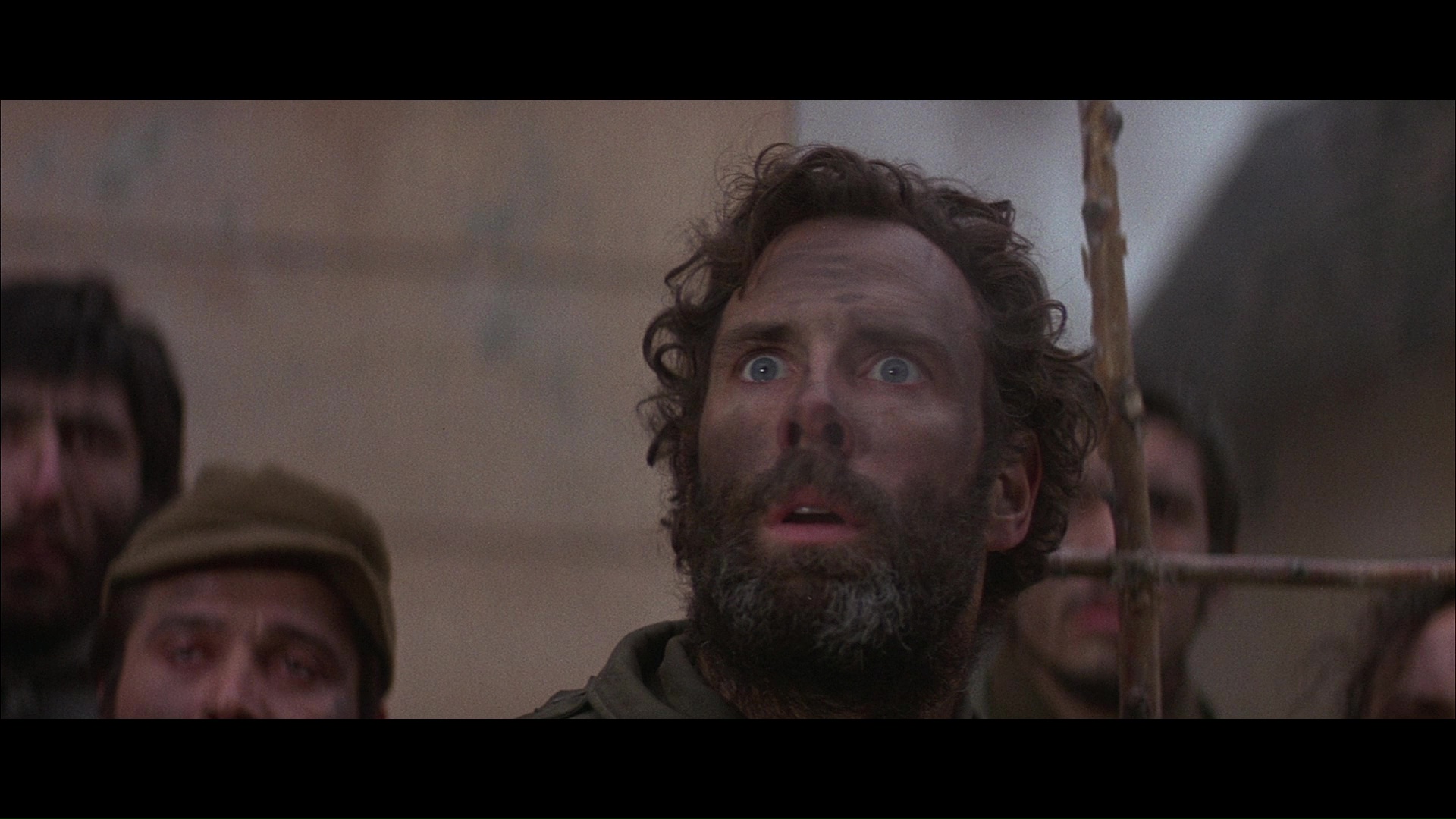 The Sicilian Clan, most of Jean-Pierre Melville's films, The 400 Blows, and Sundays and Cybelle, as well as a haunting score by the great Michel Legrand (who was hot off of The Thomas Crown Affair and Ice Station Zebra at the time.
The Sicilian Clan, most of Jean-Pierre Melville's films, The 400 Blows, and Sundays and Cybelle, as well as a haunting score by the great Michel Legrand (who was hot off of The Thomas Crown Affair and Ice Station Zebra at the time. 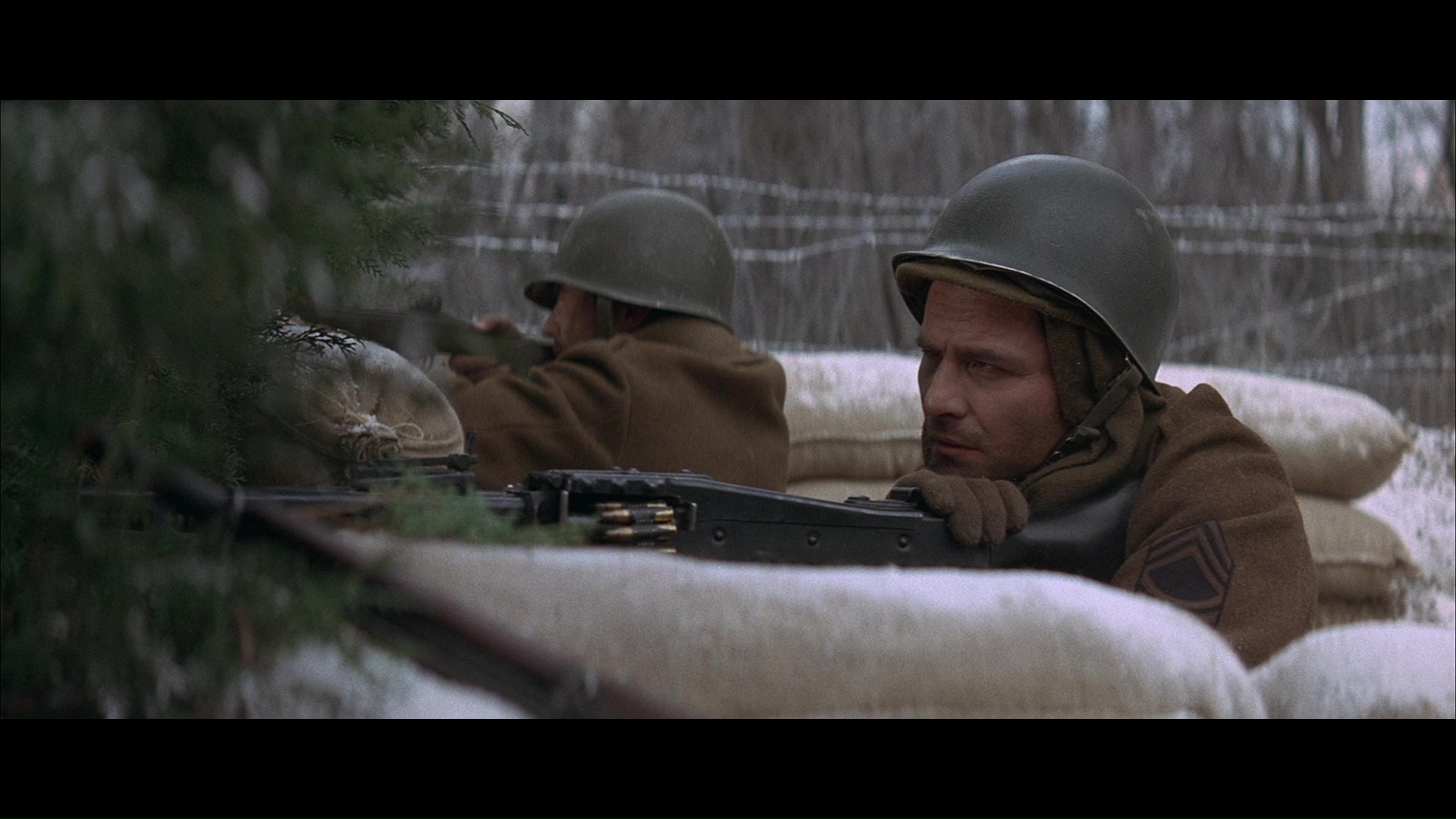 blazing colors; the stained glass shots during the credits pack a real punch from the
blazing colors; the stained glass shots during the credits pack a real punch from the 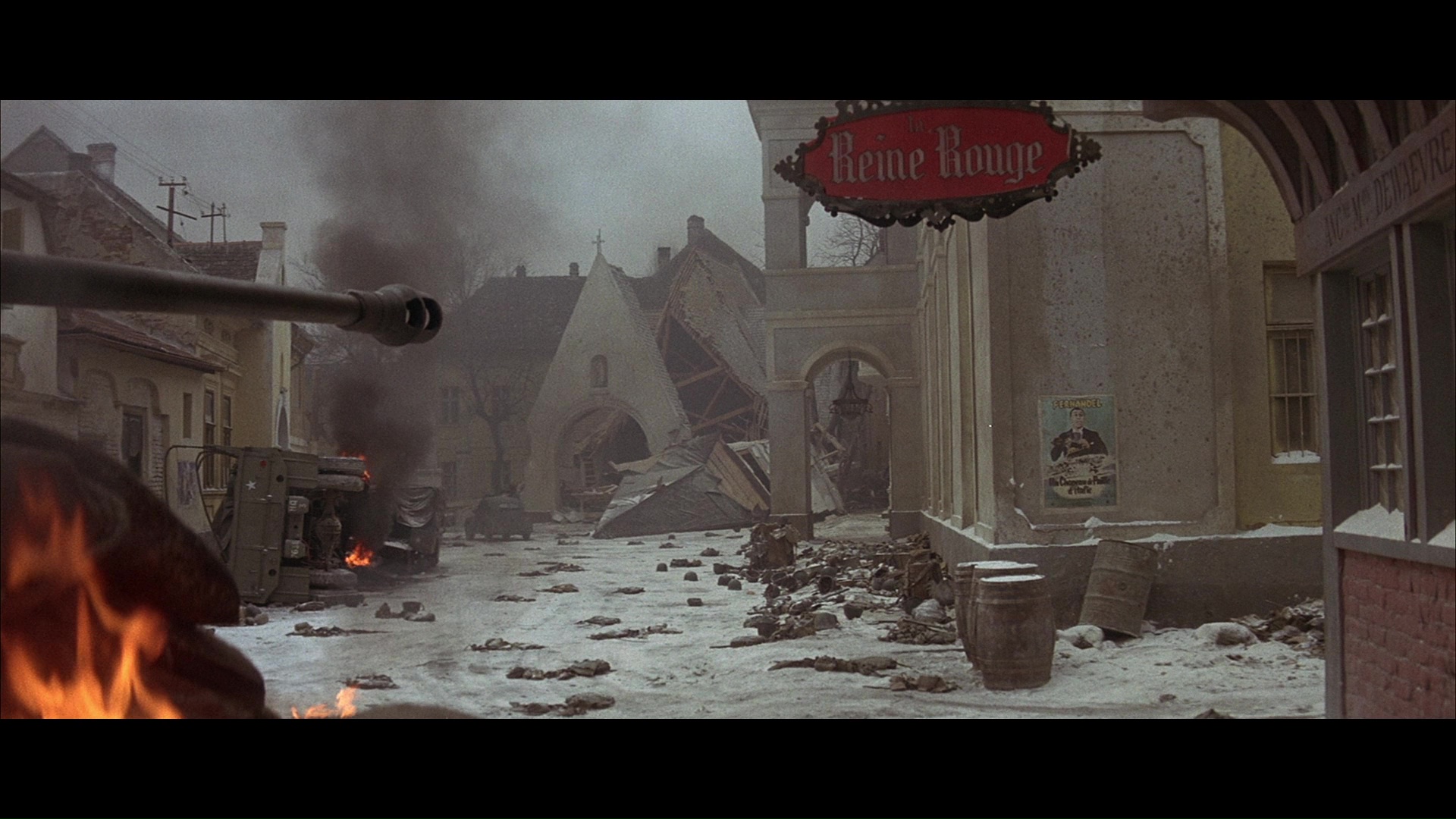 outset, and many scenes can still make you gasp. Audio options include the original 35mm mono mix (LPCM) and a 4.0 surround mix (DTS-HD MA) offering a pretty good approximation of how the six-track 70mm engagements would have sounded. Optional English SDH subtitles are also included. Also present as a third audio option is "The John Player Lecture with Burt Lancaster" from 1972 at the National Film Theatre in London, covering pretty much his entire acting career from his first break into theater through his Hollywood projects that made him one of the biggest names of his era. "The Lullaby of War" (18m20s) with actor Tony Bill goes more into his ongoing professional relationship under the tutelage of Pollack and John Calley, his work on Ice Station Zebra, the plans to make They Shoot Horses before this film got off the ground, and the ins and outs of the shoot in Yugoslavia involving a burnt castle and the creation of fake snow. "Eastlake at USD," a public access 1968 interview with source novel author William Eastlake and the University of South Dakota's John R. Milton (29m46s), is very lo-fi but worth watching as they sit outside on campus and chat about his writing process (and cough a lot). The theatrical trailer is also included, and as usual the liner notes booklet is a work of art in itself with a new essay by Brad Stevens and an assortment of archival reviews and critical responses.
outset, and many scenes can still make you gasp. Audio options include the original 35mm mono mix (LPCM) and a 4.0 surround mix (DTS-HD MA) offering a pretty good approximation of how the six-track 70mm engagements would have sounded. Optional English SDH subtitles are also included. Also present as a third audio option is "The John Player Lecture with Burt Lancaster" from 1972 at the National Film Theatre in London, covering pretty much his entire acting career from his first break into theater through his Hollywood projects that made him one of the biggest names of his era. "The Lullaby of War" (18m20s) with actor Tony Bill goes more into his ongoing professional relationship under the tutelage of Pollack and John Calley, his work on Ice Station Zebra, the plans to make They Shoot Horses before this film got off the ground, and the ins and outs of the shoot in Yugoslavia involving a burnt castle and the creation of fake snow. "Eastlake at USD," a public access 1968 interview with source novel author William Eastlake and the University of South Dakota's John R. Milton (29m46s), is very lo-fi but worth watching as they sit outside on campus and chat about his writing process (and cough a lot). The theatrical trailer is also included, and as usual the liner notes booklet is a work of art in itself with a new essay by Brad Stevens and an assortment of archival reviews and critical responses.